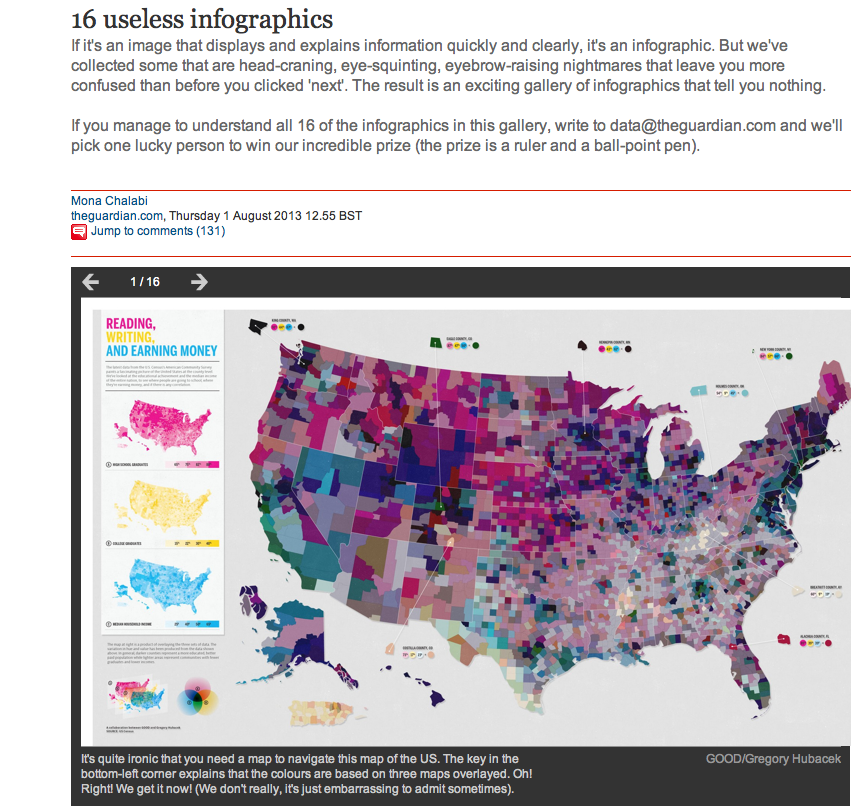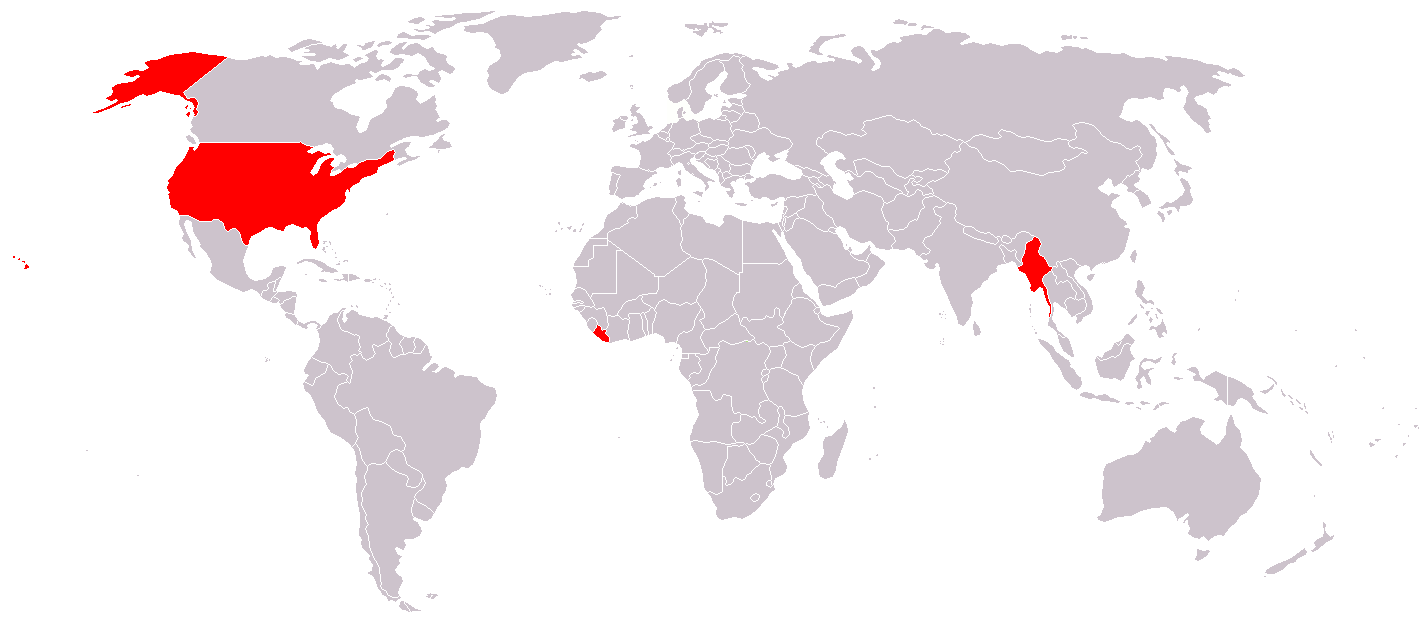
Reader’s guide for laymen too elaborate to follow?
Jennifer Raff, science blogger, recently wrote a guide for laymen on how to read and understand a scientific paper. Her purpose deserves a lot of credit but she has a very idealistic view of the behaviour of knowledge seekers outside of science.

Poor infographics adds to the communication noise
Although I am normally an advocate of telling how to do things, rather than telling how not to do them, I must recommend this slideshow from The Guardian’s Data Blog: 16 useless infographics.

Search Engine Optimization for scientists
The publishing company Wiley-Blackwell has a special web site for article and book authors and has included some advice about search engine optimization with examples.

Statistical maps tell us about our world
Maps showing statistical data can be very useful when we want to understand the world and the geographical distribution of stuff. They are often used in research fields like epidemiology, economics and sociology.

The power of social media
Social media is transforming all professional activities today, and science is not an exception. Iva Filipović, from University of Belgrade, gives some advice on how to unleash the power of social media for the benefit of your lab work and your career.

Science: autocracy or democracy?
It’s time to tear down the wall between the scientific community and the outside world. James Beggs, PhD student at University of Southampton, addresses the issue in a column.

Stage fright analyzed by Lifehacker guest blogger
Mikael Cho guest blogs about stage fright on Lifehacker – a well-written text with some useful stuff.

